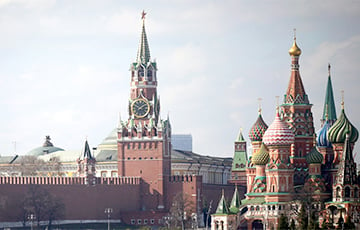'This Intrigue Keeps Many In The Kremlin Awake At Night'
5- 5.12.2024, 16:23
- 27,608

Russia itself was frightened by its own intimidation.
The New York Times writes that the head of the General Staff of the Russian Federation, Valery Gerasimov, called the head of the US Joint Chiefs of Staff, Charles Brown, after the Oreshnik strike. Earlier it was reported that Moscow had warned Washington in advance that it would use these weapons.
What does it mean? For comment, Charter97.org asked the military expert Oleksiy Melnyk, the co-director of foreign policy and international security programs of the Razumkov Center in Kyiv:
— A warning about the launch of ballistic missiles is provided for by bilateral agreements, which provide for the exclusion of incidents. The launch of a ballistic missile cannot be unnoticed with modern surveillance equipment. Both space and ground. If there were no such warning, the United States would have to respond.
Such a warning is in the interests of the party that carries out this launch. In general, the logic is quite clear. When it comes to a ballistic missile with a range of approximately 5,000 kilometers, no one will wait for the coordinates where the strike will be delivered. No one will try to find out in a short time whether this missile will fly its maximum range. And for interest, you can see what radius covers 5 thousand kilometers from Kapustin Yar [a missile range in the north-eastern part of the Astrakhan region of the Russian Federation - Ed.]. This is almost the whole of Europe.
Therefore, what Russia warned is not a gesture of goodwill, it is a kind of precautionary measures so that an immediate response does not follow. I did not see that it indicated the place where the strike would be carried out in this case. Most likely, the territory of Ukraine could be designated there as the maximum.
Well, the call immediately after this launch — here it is also important to pay attention to the fact that the initiative of this conversation came from the Russian side. In diplomacy, a very important role is played by symbols, who was the first to call, who was the first to initiate the conversation. In this case, we see another confirmation that having carried out such an act of intimidation, the Russian side itself was frightened of this. Therefore, I would interpret Gerasimov's call as an attempt to smooth over this situation.
— So who is more afraid of escalation: Putin or the West?
— Let's briefly try to analyze the rhetoric that was heard from Russia before the launch, when there were threats and such an intrigue that, they say, "this time there will be something that will definitely scare you." For several more days, this inertia continued, this kind of courage, but the expected effect, the reaction from the West or from Ukraine, did not follow.
After the first shock, there was deep concern, but this did not affect the strategic situation in any way. Ukraine continued to strike at the territory of Russia, Western leaders did not withdraw their permission to use ATACMS or Storm Shadow missiles. This is a confirmation that Russia has not achieved the expected effect.
It is clear that after such a step, there were concerns that it was worth taking such a serious risk if the effect was far from the expected. Whether it was connected or not, but then Gazprombank fell under sanctions, and the effect of such a decision already has consequences for Russia much greater than a dozen Oreshnik missiles.
— Putin is called a master of bluffing and raising the stakes, but Trump is elected president of the United States, who is clearly not afraid of escalation. What can such a confrontation lead to?
— I would not like to make any long-term forecasts now, because so far there is just a probing of mutual positions, an attempt to raise rates, especially from Russia. You were right to call it a bluff. You can bluff for a while, but if then it's time to open the cards (before this bluff works), the position of such a player deteriorates significantly.
In this case, another weakness of Putin is visible — it was easy for him to bluff with Biden. Biden from the first days of the full-scale invasion, even before that, clearly outlined his strategic priorities and made it clear to everyone that the United States and his administration will avoid escalation in every possible way. This allowed Putin to bluff, to keep the initiative in escalation.
And in the situation with Trump, when on the other hand there is a person, to put it mildly, poorly predicted, then here you need to be more careful about bluffing. So far, there is such an exchange of verbal blows, while Trump does not yet have all the powers, but when he receives them, what will be his real response? This intrigue, in my opinion, now keeps many in the Kremlin awake.










